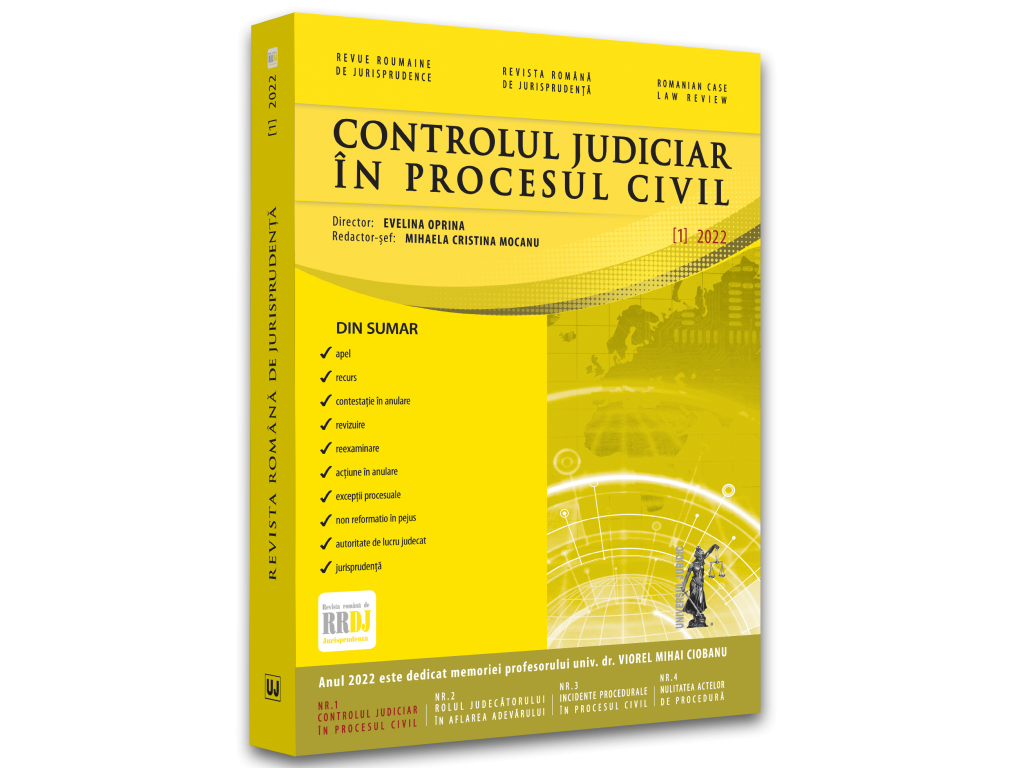Appeal. Change of the facts during the trial. Raising the plea of lack of interest of the statement of claim in the appeal vs. the plea of lack of interest of the appeal
JURISPRUDENȚĂ COMENTATĂ ȘI ADNOTATĂ
Abstract
Although both parties acknowledge that, following the conclusion of the minutes annexed to the lease and the payment of the rent for the use of the land, the dispute is extinguished, they continue to dispute how to extinguish it. On the one hand, it is submitted that the judgment on the merits must be upheld and that the appeal is moot and, on the other hand, that the statement of claim becomes moot.
The subject-matter of the appeal is the judgment itself, so as long as it has not been reformed, the subject-matter of the appeal remains. What no longer exists, however, as a result of the fulfilment of the obligations which were the subject of the statement of claim, is the interest in continuing the proceedings and raising the merits.
If the plea of lack of interest were to be examined not in relation to the claim but to the appeal, it would mean that the judgment on the merits – by which the defendant has failed in its claims – would become final and, consequently, enforceable, and the plaintiff would practically have an enforceable title subject to forced enforcement for obligations already performed by the defendant. As the only appeal has been lodged by the defendant, in the light of the provisions of Article 480(1) and (2) of the Civil Procedure Code, the court's only procedural means of challenge is to allow the appeal and change the judgment in full, in the sense of admitting the plea of lack of interest in the application and dismissing it as devoid of interest.








